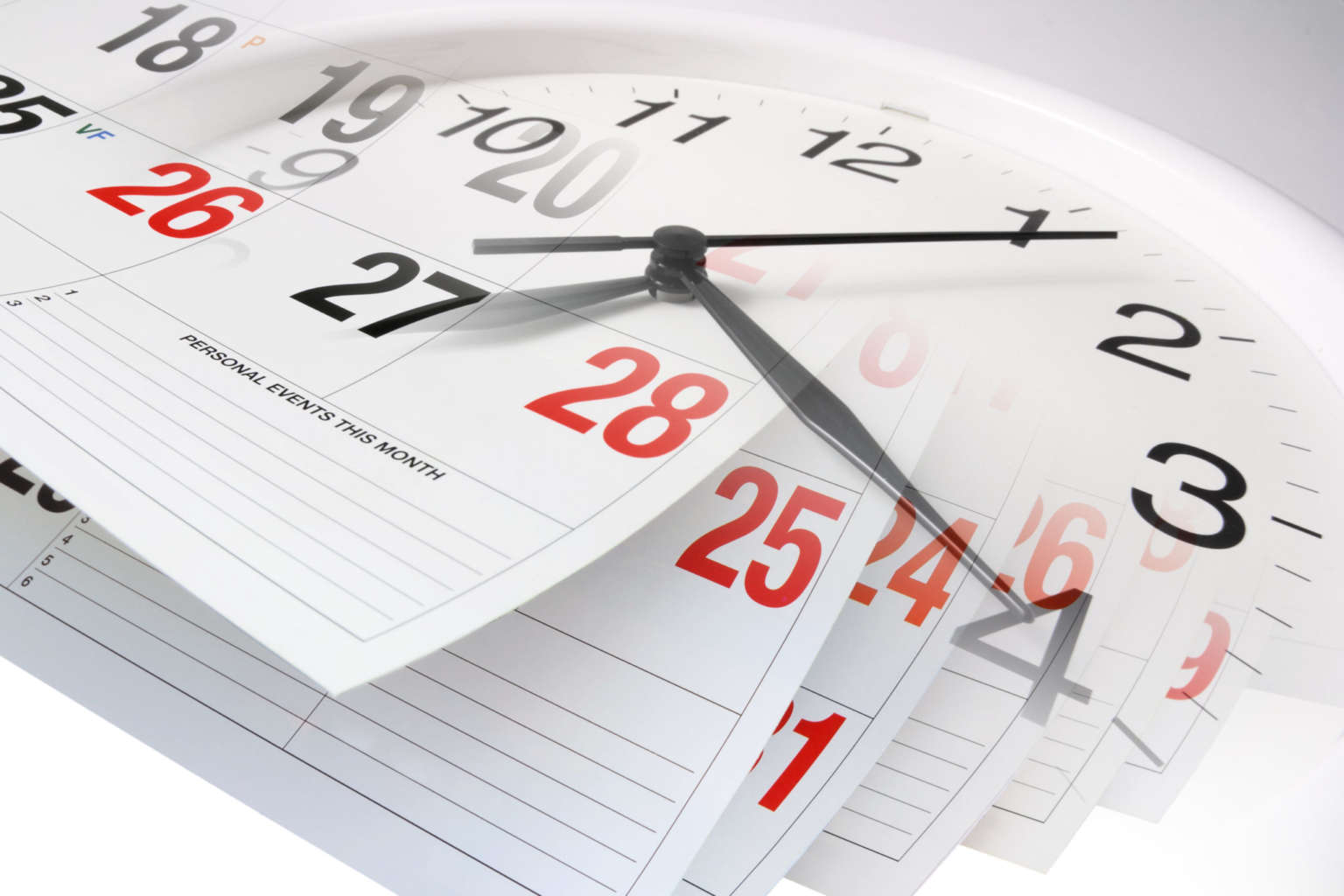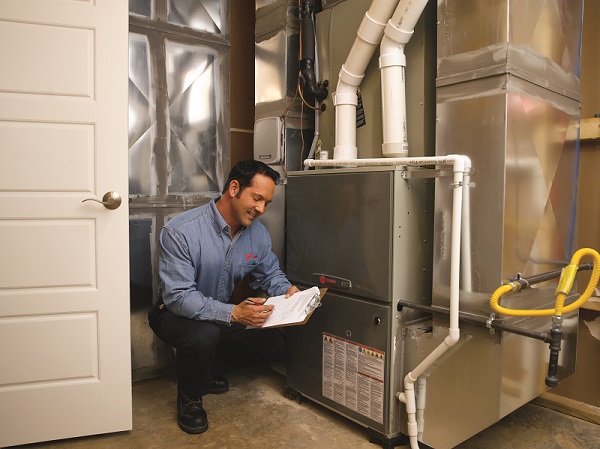How Long Do Furnaces Last?
Average Furnace Lifespan
How long do furnaces last?
It’s rare for a furnace to last longer than 30 years, but it’s not unheard of. Precision Temperature replaced one from the 80s about a month ago.
The average life expectancy for a gas furnace, though, is around 15-30 years.
If you keep up with your preventative maintenance and take good care of your furnace, there’s no reason it shouldn’t easily last to the 15 year mark.
Factors that shorten furnace lifespan
But, of course, it is a piece of machinery filled with moving parts and nothing lasts forever. Let’s take a look at some of the reasons your furnace might give out early:
- Furnace make and model. Some brands are better than others, or there wouldn’t be competition between them. Precision Temperature trusts Trane, America’s #1 brand, with your home or business.
- Age of your unit. While this might seem like a given, it bears repeating. Older units, especially gravity furnaces (the kind hanging on your wall), were built to last and could easily push the upper end of the scale. While newer models are more efficient, reducing wear and tear. So it could go either way.
- Professional Installation. Nine times out of ten, a system purchased and installed without the assistance of a licensed professional will void the warranty. It can also lead to a whole host of problems caused by improper installation.
- Frequency of furnace preventative maintenance. Regular maintenance is crucial for proper system health. As a rule of thumb, your entire HVAC system should be serviced twice a year. Once in the spring for your air conditioner, and once in the fall to get your furnace ready for winter.
- Location and Ventilation. Your furnace is likely located in either your garage or a closet. In either scenario, you should ensure that your furnace has proper clearance and ventilation. Too much moisture or not enough air flow can damage the heat exchanger and significantly reduce the life of your unit.
Should I Replace My Furnace?
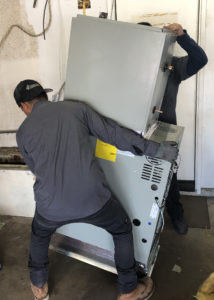 Only you can truly make the decision to replace your furnace or not. But there are some considerations that you should keep in mind.
Only you can truly make the decision to replace your furnace or not. But there are some considerations that you should keep in mind.
Even if your unit has reached the 15 year mark and is still going strong, you may find that you’ll benefit from replacing it.
Each and every year that goes by, your unit loses a bit of it’s efficiency. That means that to keep your house at the same temperature from year to year, it has to work a little harder and more and more heat is lost in the process.
By replacing your furnace, you may find that it lowers your energy bills.
Additionally, in the years since you last bought a furnace, it may be that new technology has come out that both reduces load and increases effectiveness. Replacing your furnace could be the best thing for your family.
But what if your furnace has already broken down? That makes your decision all the more easier by following a simple rule of thumb. If the repair costs more than 50% of the total cost of the unit, it’s best to replace it.
Why spend $1,000 now and $1,000 next year, and $1,000 the year after, when you could have spent $2,000 up front and avoided repairs for the next several years?
So how long do furnaces last? Well that’s really up to you.
Signs your Furnace is Nearing the End
Age of your Furnace
If your furnace is pushing 25 years or more, it’s probably nearing the end of it’s effective lifespan.
However, as already mentioned, this shouldn’t be the end-all-be-all in the decision. You might choose to replace a 15 year old furnace, or it could last more than 30 years.
Increasing Energy Bills
You probably won’t notice much of a difference in energy bills from month to month, but if you compare the winter months this year to last year, and the year before, and the year before, and the year… you get the picture.
Comparing bills from year to year will give you a greater understanding of how much you’re spending.
Of course, you’ll have to take into account whether it was a particularly cold winter one year, or whether you moved, or whatever else might affect daily use.
But if your usage has remained steady and your bills keep going up and up, an inefficient furnace might be the culprit.
That or your provider keeps raising energy rates.

Strange Noises
By now you’ve begun to realize that, like most illnesses, any one symptom is not enough to throw in the towel or kick your furnace to the curb.
The same is true of this problem, but to a lesser degree. Strange noises can be an indication of a failing furnace.
It can also be just a single occurrence if it’s the first time you’re starting your furnace for the winter season. The dust and dirt that gets around the igniter could cause a popping sound when the flames first fire.
But when you’re months into winter and it’s clanging and banging, there is probably something wrong.
But once again, that’s no reason to jump to conclusions. It could be a simple repair. Call a professional HVAC technician, like Precision Temperature, to inspect your furnace.
Strange Smells
It’s not unusual to smell a bit of gas the first time you start your furnace for the year, but if it persists, turn it off immediately.
If you smell any other odd odors, don’t take any chances with your family’s health. Turn off your furnace and call for help.

Uneven room temperatures
Are you finding that you’re constantly adjusting the thermostat? Or maybe one room is colder than another. These are both signs that your furnace is incapable of handling the load it once did.
Repeated repairs
Have you ever had an old car that constantly needed repairs? What did you do?
You likely do one of two things. You keep repairing it because it’s got sentimental value, or your trade it in for a newer model, right?
Unless your furnace has got the initials of your first love etched into the side of it, there’s likely little sentimentality to be had.
Furnaces suffer the most breakdowns in the last two years of their life. Don’t keep repairing that old jalopy and flushing more money down the drain.
Another sign that your furnace is on the way out is if the technician has to order parts to fix your furnace. As systems get older, parts are no longer readily available. This wait time means more nights in the cold for you and your family.
How much does it cost to replace a furnace?
The cost can vary widely depending on region, make and model, and service company used to install the furnace.
For an in-depth look at how much money you can expect to spend, check out our article: How much does it cost to replace a furnace?
What to Look For in a Replacement Furnace
Of all the gadgets in your home, there is little more important than your furnace. In fact, California law mandates that every home have some source of heating. Given how crucial your furnace is, you should consider these factors when replacing your furnace.
Type of System
If you have central air, your furnace is likely connected to that system. But if you do not, you can choose a gravity wall heater, a mini-split ductless unit, or choose to have central heat installed, even if air conditioning is not attached.
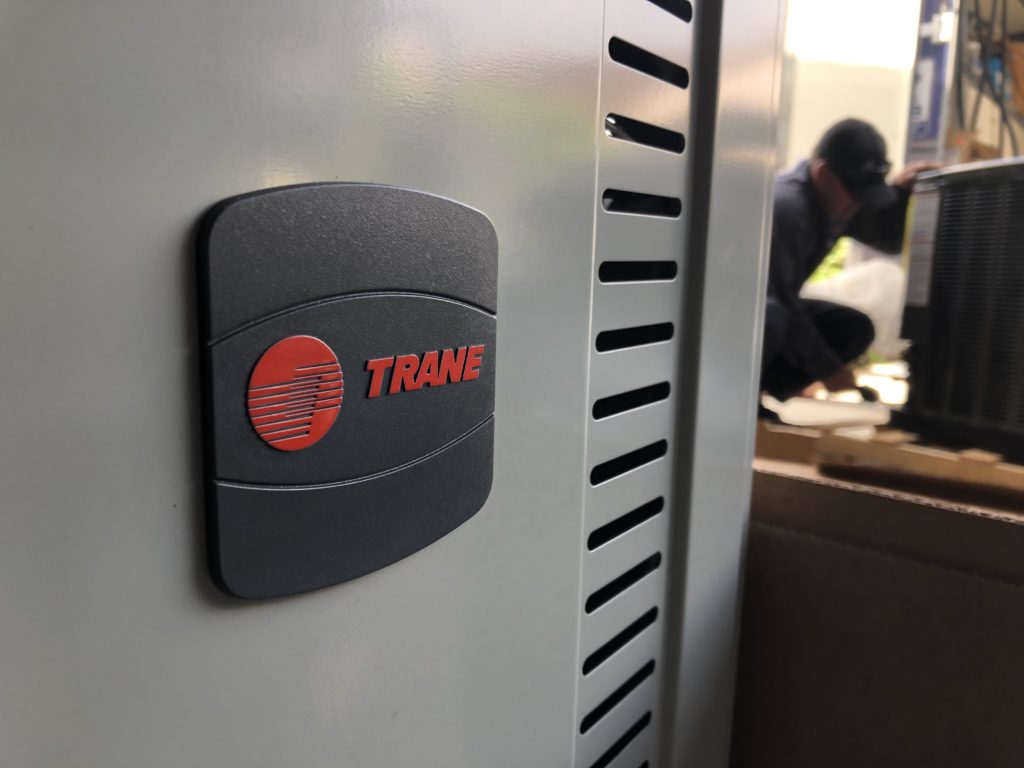
Zoning
If you choose to install a brand new heating system, there are a couple of choices available to you.
There is of course the standard one setting, whole house system. If you choose mini-splits, you can place units in each of the rooms you want heated, allowing you to adjust the temperature individually.
But you might also decide to install two units that control two separate sides of your home run by two separate thermostats. This allows you to not waste energy on a portion of the home you might not regularly use.
Energy Source
Depending on the system you choose, the unit may use a different source of energy to heat your home than others.
For instance, a 2-in-1 heat pump that provides both AC and heat uses electricity to heat your home. But your standard or gravity heater likely uses gas.
Gas is more affordable, but not all homes come equipped with gas lines.
Make and Model
Different brands have different costs. And even in a single brand there are multiple options from economy to high efficiency models. A professional HVAC technician is able to recommend the model that would best fit your needs.
Unit Sizing
Every home is different.
Some are big and some are small. Because of this size disparity, one size does not fit all in the HVAC industry.
Your unit should be specifically sized for you home. Too powerful a unit and it will stop and start constantly, wearing out the parts and costing you money. Too weak of a system and it’ll never be capable meeting your needs.
Professional Installers
The company you choose to install your unit will determine how well it operates and how much you pay.
At Precision Temperature, we provide quality at the most competitive prices. We’re not the cheapest in San Diego, but we’re the most reliable while still maintaining affordable pricing.
If you’re curious where we measure up compared to the competition here in San Diego, check out our AC Install Cost Case Study.

How to make your furnace last longer
Now that we’ve answered the question, “How long do furnaces last?” you might be saying, “What if I don’t want to replace my furnace? How do I make my furnace last?”
The 15 years mentioned earlier is just an average minimum. A furnace can go sooner, but it can also last much longer.
Like anything (your home, your car, your possessions) proper care of your furnace will provide a greater chance of a long and healthy lifespan.
Here are a few ways you can help your unit provide you many years of comfort:
- Equipment quality — Not to beat a dead horse, but the quality of the brand and furnace that you purchase will greatly affect how long it lasts. Work with a professional HVAC contractor to determine the unit that best meets the needs of your family.
- Region — How often you use your furnace and how hard it needs to run to heat your home will determine how quickly it wears out. Homeowners in North will burn through furnaces faster than those in the South.
- Humidity — Another region based factor, humidity can greatly affect the lifespan of your system. Do your best to control the humidity level in your home or your furnace might become susceptible to rust.
- Clean filters — One of the easiest things you can do to keep your furnace running strong is by cleaning or replacing the filter regularly. The dirtier the filter, the harder your furnace has to work to keep your house warm.
- Annual maintenance — Regular professional tune-ups are the only true way to ensure that all the parts are functioning as they should and that the unit is as clean as it can be. Annual maintenance for your furnace should be performed in the fall to get ready for the winter season.
What's involved in furnace maintenance?
When you call Precision Temperature to come perform regular maintenance on your furnace, there are few things you can always expect.
We perform maintenance on some unit somewhere every single day of the year.
We’ll thoroughly inspect your unit, clean what needs to be cleaned, and recommend replacement of parts or repairs when we believe it is necessary.
Here is a short list containing just a few of the actions we’ll take with your furnace:
- Fan and gas valve inspection
- Pilot and burner cleaning
- Heat exchanger inspection
- Thermocouple inspection
- Tightening of electrical and gas connections
- Lubrication for moving parts
- System testing
- Replacing the air filter
- Cleaning coils
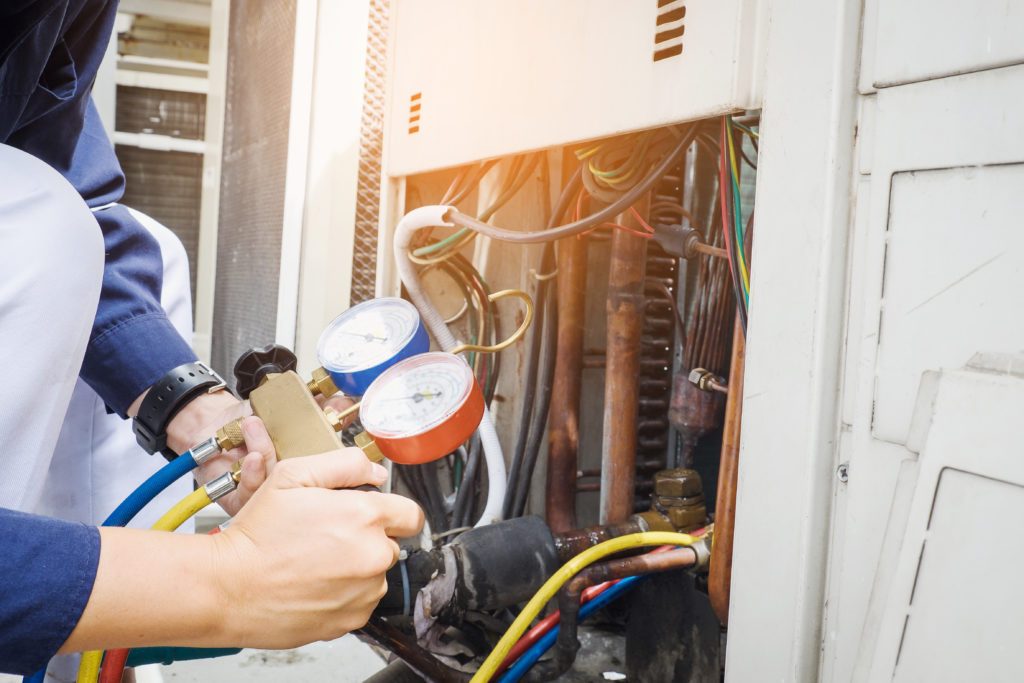
How Long Do Furnaces Last in San Diego?
How long do furnaces last in San Diego? The answer is: It depends.
It depends on where you live in the county. It depends how warm you like your house. And it depends on the type of furnace you have.
Compared to furnace wear and tear nationally, San Diego furnaces last much longer because they’re used far less often.
The average San Diego winter lasts all of 3-4 weeks.
However, it can last longer, as it did in 2019 where the cold persisted for 3 long months.
If you live on the coast, you might not even heard of this “winter” thing.
But for East County residents, winter is a very real thing, even if the lows never dip below freezing. We can’t all survive in the frigid North.
Tune-up with Precision Temperature
The best way to prepare for winter is to get a furnace tune-up with Precision Temperature.
Call us today at 619-588-5321 to schedule your appointment.


